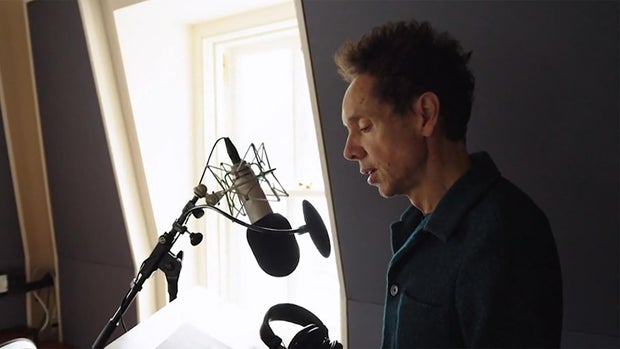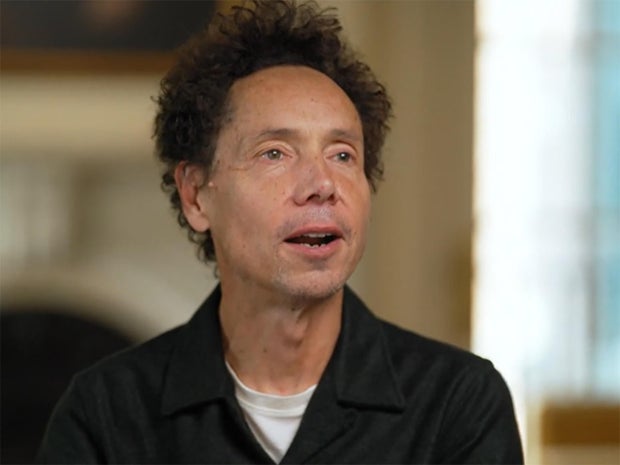CBS News
Drought takes devastating toll on Louisiana’s crawfish industry

Lafayette, Louisiana — Cracking and peeling is serious business in the South this time of year because it’s crawfish season.
But the crustation that looks like a tiny lobster and tastes like a salty combination of shrimp and crab has been hard to find this year because of a devastating drought. The shortage has meant crawfish is pricier.
Cajun Table is one of the few restaurants in the heart of Creole country that has supply.
“Very, very slow start,” Sean Suire, owner of Cajun Table and a lifelong crawfish farmer, told CBS News of the crawfish season. “I’ve never seen the drastic decrease in crawfish like I’ve seen this year.”
Harvesting his own fields is the only reason Suire has crawfish, but not nearly enough. He learned from his father on 350 acres of crawfish farmland.
“What we’re bringing in now is about seven to eight sacks, and we’re running 4,000 cages,” Suire said. “So what we normally would be bringing in right now is at least 30 to 40 sacks.”
Suire says that’s less than 20% of his normal haul. He took CBS News out on his boat to see what that looks like. Normally, cages would hold dozens of crawfish. But today there are only a handful. He rebaits the cage, hoping for better luck on the next pass.
One of the driest seasons on record last year means the harvest field didn’t get enough rain. Weeks of triple-digit heat sent the crustaceans burrowing deeper into the mud, many unable to emerge.
“Last year at this time we were selling crawfish for $2.75 a pound,” Scott Broussard, whose Arcadia Crawfish Company is one of the nation’s largest crawfish wholesalers, told CBS News.
This year, though, Broussard says his crawfish are selling for $10 per pound.
In a normal year, Broussard’s company is shipping millions of crawfish. But now his massive plant is at a virtual standstill with delivery trucks idle. A refrigerated room, usually packed with thousands of sacks of crawfish, is down to a few dozen.
“It’s going to hurt our local economy unconditionally,” Brossard said. “This industry produces over $300 million a year for our local farmers in economy here. We’re going to be less than 10% of that.”
Anthony Arceneaux has owned Hawk’s Crawfish for 42-years. The lines to get in are legendary, and Hawk’s is open only in crawfish season, from roughly January through June. On a busy night during normal crawfish season, some 400 people would pack the place, chowing down on 2,000 pounds of crawfish. But so far this season his restaurant remains closed.
“Probably not till the end of march, hopefully, possibly April,” Arceneaux said of when his restaurant might open.
“If I got every crawfish in the state right now, it wouldn’t be enough,” Arceneaux added.
Experts say hotter summers will likely continue, and researchers at Louisiana State University are studying the impact of climate change on crawfish production.
Suire says this year, crawfishing feels like more of a hobby than a business as costs exceed the catch.
“I may not see the kind of supply that we need until May, June, until the season’s over,” Suire responded when asked when he expects to see the supply he needs.
This is a lifestyle he loves, but love doesn’t pay the bills. He hopes the end of the season will.
“Hopefully, this last few months will account for what we missed out on the first few,” Suire said. “I’m just remaining hopeful.”
CBS News
Malcolm Gladwell on “Revenge of the Tipping Point”

Watch CBS News
Be the first to know
Get browser notifications for breaking news, live events, and exclusive reporting.
CBS News
Malcolm Gladwell’s life has changed; he has not

On Tuesday, a new Malcolm Gladwell book comes out. And if history is any guide, it will be a bestseller. “They’re stories about ideas,” he said. “They have characters. They have plots. I’m usually trying to say something about the world.”
His first book, “The Tipping Point,” published in 2000, established the Gladwell recipe: he explores a theme through anecdotes and little-known scientific studies. “‘Tipping Point’ was about the epidemic as an incredibly useful way of understanding how ideas move through society,” Gladwell said. “And epidemics have rules. Let’s learn the rules, right?”
His seven New York Times bestsellers have sold 23 million copies in North America alone. His fee for corporate speeches is $350,000. His fans have downloaded a quarter-billion episodes of his podcast, “Revisionist History,” and he founded a company called Pushkin Industries to produce it.
CBS News
In other words, Gladwell has come a long way from the small Canadian town where he grew up, son of a British father and a Jamaican mother, whom he describes as “subversive,” someone who would write notes to excuse her son from class with a blank space. “I would just fill out the date,” said the man who skipped a lot of school.
He attended the University of Toronto, but his best education was the ten years he worked for the Washington Post. “I knew nothing about newspapers,” he said. “I was so raw. I was 23, I think, or 24. Bob Woodward was two rows away from me. I learned at the feet of the greatest journalists of my generation.”
In 1996, Gladwell joined The New Yorker. He wrote about why, in the 1990s, New York’s crime rate plummeted in an article called, “The Tipping Point.” A book followed. It introduced a recurring Gladwellian theme: hidden patterns in the way the world works.
He’s a world-class contrarian, about college (“You should never go to the best institution you get into, never; go to your second or your third choice. Go to the place where you’re guaranteed to be in the top part of your class”); about working from home (“It’s not in your best interest to work at home. … If you’re just sitting in your pajamas in your bedroom, is that the work life you want to live, right? Don’t you want to feel part of something?”); about football (“I think the sport is a moral abomination”).
Gladwell says he enjoys being provocative: “Of course!” he said. “I like poking the bear. I mean, journalists should poke the bear.”
CBS News
Gladwell’s fans love his storytelling, and the A-ha! moments they bring. His critics, on the other hand, have described his writing as “generalizations that are banal, obtuse, or flat wrong,” and “simple, vacuous truths [dressed] up with flowery language.” “I’m with the idea that not everyone’s gonna like my work,” Gladwell said. “100% of people don’t like anything.”
In a 2021 “Sunday Morning” interview, Gladwell said, “I would rather be interesting than correct.” He called that “an overly provocative way of saying things! No, I think what I meant was, if I turn out not to be right, I’m not devastated. I accept that as the price of doing business.”
Gladwell often turns his mistakes into new chapters or podcast episodes. In “The Tipping Point,” he explained that New York’s crime drop was the result of “broken windows policing.” As he described it, “Little crimes were tipping points for big crimes.” But that philosophy led to New York’s policy of “stop and frisk.”
“Doing 700,000 police stops a year of young Black and Hispanic men is deeply problematic,” Gladwell said. “We were wrong. I was part of that. I’m sorry.”
Which brings us to the new book, “Revenge of the Tipping Point.” “The original ‘Tipping Point’ is a very optimistic, rosy book about the possibilities for using the laws of epidemics to promote positive social change,” he said. “In the last 25 years, I spent a lot of time thinking about the other side of that problem, which is, what happens when people use the laws of epidemics in ways that are malicious or damaging or self-interested?”
Little, Brown & Co.
The book’s stories range from topics as obscure as cheetah reproduction, to stories as big as the Holocaust. He writes that almost nobody talked about the Holocaust, or even called it that, until NBC aired a miniseries called “Holocaust” in 1978. “And what changed happened like [snaps fingers]. I mean, it was just there was a tipping point in our understanding of the Holocaust,” he said.
This book arrives at a tipping point in Gladwell’s own life. In a span of five years, he got engaged, had two children, turned 61, and moved from Manhattan to pastoral Hudson, New York. “It’s a lot to handle. There isn’t a single person who ever lived whose parents did not say, ‘This is a lot!'” he laughed. “I have become the person that, you know, I once despised, and nothing makes me happier.”
He also despises Ivy League colleges, accusing them of prioritizing their own reputations over focusing on their students.
Has parenthood affected his outlook on any of the things that he’s written about before? “Well, it’s prepared me for the possibility that I will be a massive hypocrite!” Gladwell laughed. “So, you know, it’s one thing to write about what you should do with your kids when you don’t have them.”
For all his success, Malcolm Gladwell maintains that nothing has changed in his approach, his work ethic, or his contrarianism. “It hasn’t changed what I do,” he said. “I don’t farm out my research; I still go on reporting trips. It hasn’t gotten old. In fact, my great regret is I don’t have time to do more.”
READ AN EXCERPT: “Revenge of the Tipping Point” by Malcolm Gladwell
For more info:
Story produced by Wonbo Woo. Editor: Remington Korper.
CBS News
Coldplay on their record-breaking world tour

Watch CBS News
Be the first to know
Get browser notifications for breaking news, live events, and exclusive reporting.












